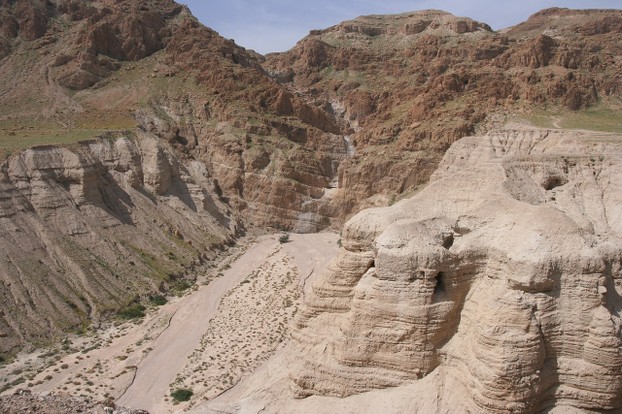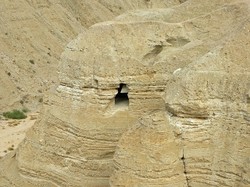The next temptation was for Jesus to be taken to the pinnacle of the temple and be told that if he was the Son of God to throw himself down, because God would send angel to protect him.[Matthew 5:5-6.] This is a temptation to by pass the need for faith in his followers, using spectacular gestures and gimmicks to gain support. Jesus rebuffs the tempter by stating the Scripture enjoins us not to put the Lord God to the test. Failing this temptation would mean that Jesus was a mere wonder worker, not one with a challenging moral message.
The second temptation affects many religious ministers, who may be tempted to present Christianity in a gimmicky way, stripped of its challenging moral message and its call to repentance, the change of hearts and minds that the Christian faith requires. A preacher who relies on his eloquence alone without having depth of faith and holiness of life sufficient to preach also falls for this temptation.
The third temptation is the one that I find the most frightening. "Then the Devil took him to a high mountain and showed him all the kingdoms of the world... all these will be yours if you worship me." This is the temptation to avoid the cross and use all his power to force obedience. It is the temptation to fundamentally misdirect his mission away from God to the service of evil. It is a denial of Jesus' true messiahship. Jesus rebuffs it by telling the tempter that you must worship the Lord God only. At which point the tempter leaves, but he will be back. Jesus is then helped by angels who minister to him.
When you see the evil totalitarian regimes whose tyrants that have benighted the world: Hitler,Stalin, Mao, Pol Pot, North Korea etc, you see that the tempter wanted to make Jesus the heart of a brutal regime that misused his powers and constituted a total perversion of his mission. But this temptation still affects Christians whenever Christianity is perverted into a tool of unjust political systems. Maurice Casey's tome, Jesus of Nazareth, which traces Jesus scholarship back through the ages, tells of how the Nazis tried to pervert Jesus' story to serve their cause. Fiebig played down Jesus' Jewishness, and Chamberlain, an English Nazi sympathizer, tried to present Jesus as an Aryan supremist, to name but two perverters of the truth. Yet the Nazis were not the only culprits, for there were those who attempted to hijack Christianity to the service of authoritarian socialism and toadied to Stalin and other dictators. I had personal experience of some such people in my time at theological college, and I found them less than desirable.
Note that after the story of the temptations in Mark's Gospel, where it is very brief and not detailed like it is in Matthew and Luke, Jesus' first healing is expelling an evil spirit. It was after he had conquered the temptations in himself that he could challenge it in others.
For those of you who are interested, if you go to www.frankbeswick.co.uk , my website, you will find a short story based on the temptations of Christ, entitled Genius Loci. It is in the list of latest articles on the right hand side of the page. It is the seventh or eighth article from the top.








 TheThousand Year Gardenon 11/26/2025
TheThousand Year Gardenon 11/26/2025
 Women of the Gospelson 10/11/2025
Women of the Gospelson 10/11/2025
 Religious Gardenson 08/25/2025
Religious Gardenson 08/25/2025
 Doctor of the Church: John Henry Newmanon 08/03/2025
Doctor of the Church: John Henry Newmanon 08/03/2025



Comments
I have never heard of this practice in the UK.
Quite a few Unitedstatesian businesses during the 20th century closed at least during the three hours of Jesus Christ being crucified.
Parishioners under 65 and their priests who fasted imbibed at most water or water with simplest, smallest bread pieces (in a way like wafer and water).
Was such a practice ever British Isles-er?
If so, would it be a 21st-century observance?
It seems to have been a lifestyle choice. But he is not said to have abstained from water
Cesar Chavez fasted to publicize migrant working conditions.
Some sources identify his fast as 25 days even as others indicate 30 days. Either way, he lost 30 pounds and nourished himself only with water.
St. Matthew mentions John the Baptist as locust- and wild honey-consuming. Was that a fasting or a lifestyle choice? And would honey have been sufficient for hydrating or would he have required water?
The statement that Jesus ate and drank nothing is generally not taken literally, unless a miracle happened. We cannot go without water?. But there is no information on Jesus' diet..
Thank you for your comments below in answer to my previous observation and question.
Your first subheading, Jesus in the wilderness, advises us that "In the cliffs above Qumran there were caves, which when the Qumran site was in use were sometimes, it is believed, used for community members to spend periods of prayer, fasting and silence in the solitude of the desert. They were away from the community, but not so far that no help was near."
Is it known what fasting impelled Jesus Christ not to drink or to eat?
For example, is it known whether or not that diet or non-diet involved just drinking water?
We do not know, but I do not know of any extended or deep cave systems in Palestine.
We know almost nothing of what happened during those forty days. We can only surmise.
The computer crashed before I commenced another component to my comment below.
Might Jesus Christ have moved far enough from the cave entrance as to miss day- and night-sky lights?
If so, might those 40 days have been all dark or dark lightened by daily or periodic controlled fires?
Thank you for your comment below in answer to my previous observation and question.
Ancient Greek oracles dwelled deep in underground divisions of cave systems.
Might Jesus Christ have dwelt deep downward too?